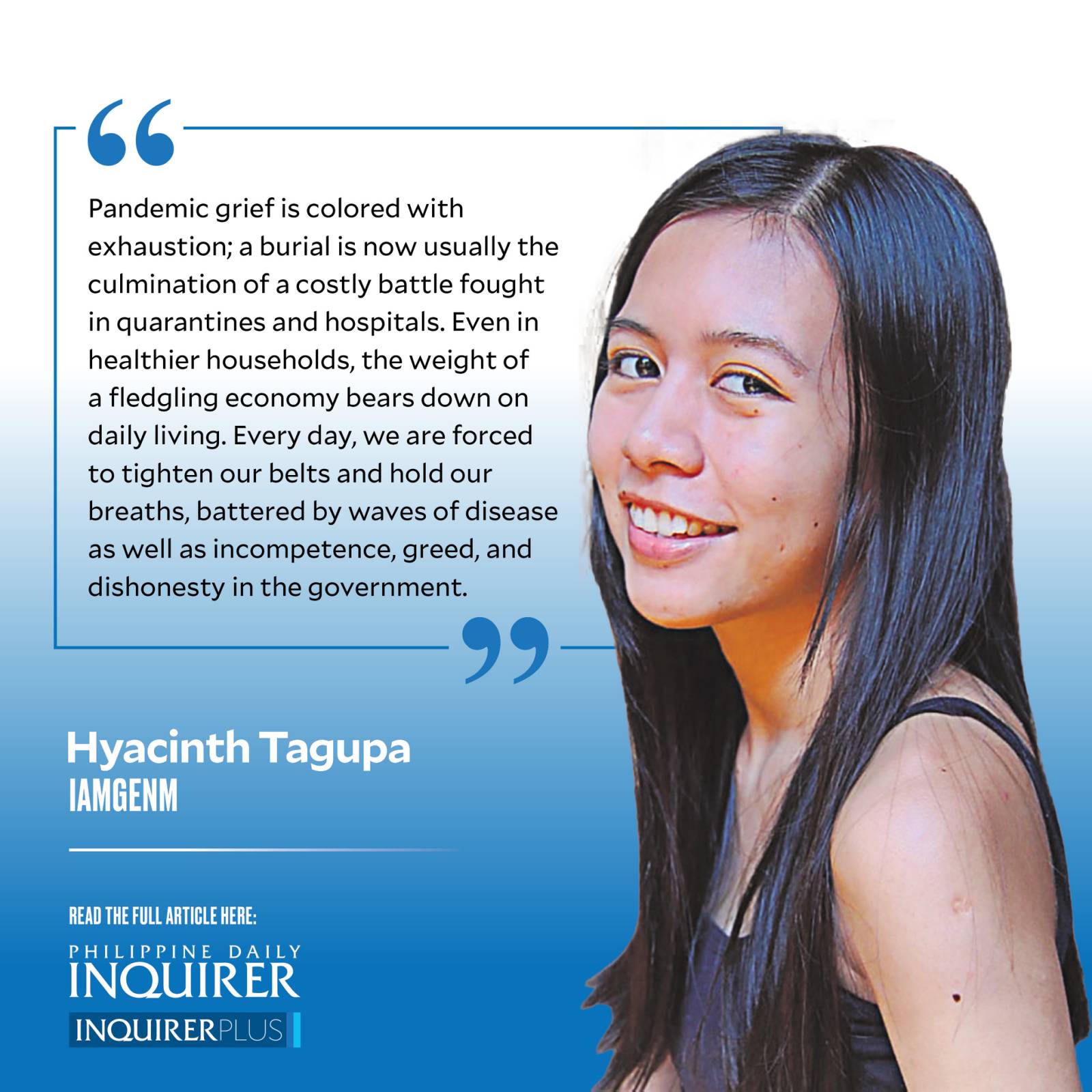Our changed grief (and new kindnesses)

We are never getting out of this mess,” a friend remarked ages ago, referring to how the threat of COVID-19 would keep resurging. As an optimist, I would not accept it at first, but as the months dripped painfully by, the virus did the opposite of waning: The waves kept coming around the globe and more variants surfaced.
Whether or not COVID-19 will eventually be eradicated, it has profoundly changed certain aspects of our lives, and we have to come to terms with new forms of grief as well as new necessary kindnesses.
The pandemic has changed the way we grieve, making it more personal yet more communal at once. Last month, I watched a video of a distant relative’s remains being moved to its resting place—not by a stately hearse but by a truck, surrounded not by veiled mourners but by personnel in white protective suits.
As his immediate family grieved in their home, physically distanced from everyone else, many condolers shared their mourning in a different way. On social media, people from all over town (and some from outside) lit virtual candles and exchanged their personal stories about the departed, as if in a traditional coffee-fueled haya (wake). Only this time, the wake was wider and the condoling community expanded to anyone with a Facebook account.
Pandemic grief is colored with exhaustion; a burial is now usually the culmination of a costly battle fought in quarantines and hospitals. Even in healthier households, the weight of a fledgling economy bears down on daily living. Every day, we are forced to tighten our belts and hold our breaths, battered by waves of disease as well as incompetence, greed, and dishonesty in the government.
But out of our collective grief and exhaustion springs an untapped well of compassion. Friends go the extra mile to take care of each other, whether through care packages, supply deliveries, or simple “How are yous.” Groups have learned to look out for their members’ mental health, be it among frontliners, other workers, students, and even parents. And across the country, community pantries have popped up for those in need—who knew generosity flowed this freely?
Small acts have become symbolic and practical expressions of kindness, too. The simple wearing of masks, hand-washing, and avoidance of crowded places are now concrete ways of being considerate toward others.
Such kindnesses weren’t very common or important to us before, but now it is clear that we are capable of active empathy in these novel ways. Moreover, it is necessary to keep exercising this compassion, both because others need our help to keep from sinking and because we need to sustain our own sense of humanity in a time when it’s easy to be selfish and corrupt.
We ask: How long will we have to endure this pandemic? Nobody has a definite answer, though the virus will certainly keep resurging in places where public health is poorly managed. In the Philippines, it is apparent that we have to brace for a longer dance with COVID-19, considering that policies have been shaky and only 15.8 million people have been fully vaccinated so far (out of about 70 million adults).
The greater question is: How do we keep coping?
Experts believe that even when we get out of the pandemic phase of COVID-19, it will likely become an endemic disease or a permanent presence in the population, like influenza or dengue. A handful of countries such as Singapore and Malaysia have started shifting their focus from “COVID zero” to “reducing the risks” and “living with the virus.” And just this week, an executive from the World Health Organization posited that the virus is likely “here to stay with us.”
(A crucial requirement for living with COVID-19 is to vaccinate a large majority of the population to boost immunity and ease hospitalizations.)
How would weary Filipinos endure in a world where a costly and deadly disease is part of the new normal, and where the virus could rip through the still-large unvaccinated population? We continue to demand better leadership, but while that remains to be attained, our shared grief and new kindnesses provide a signpost as to how we might best move forward: We hold on to each other.
—————-
hyacinthjt@gmail.com




















